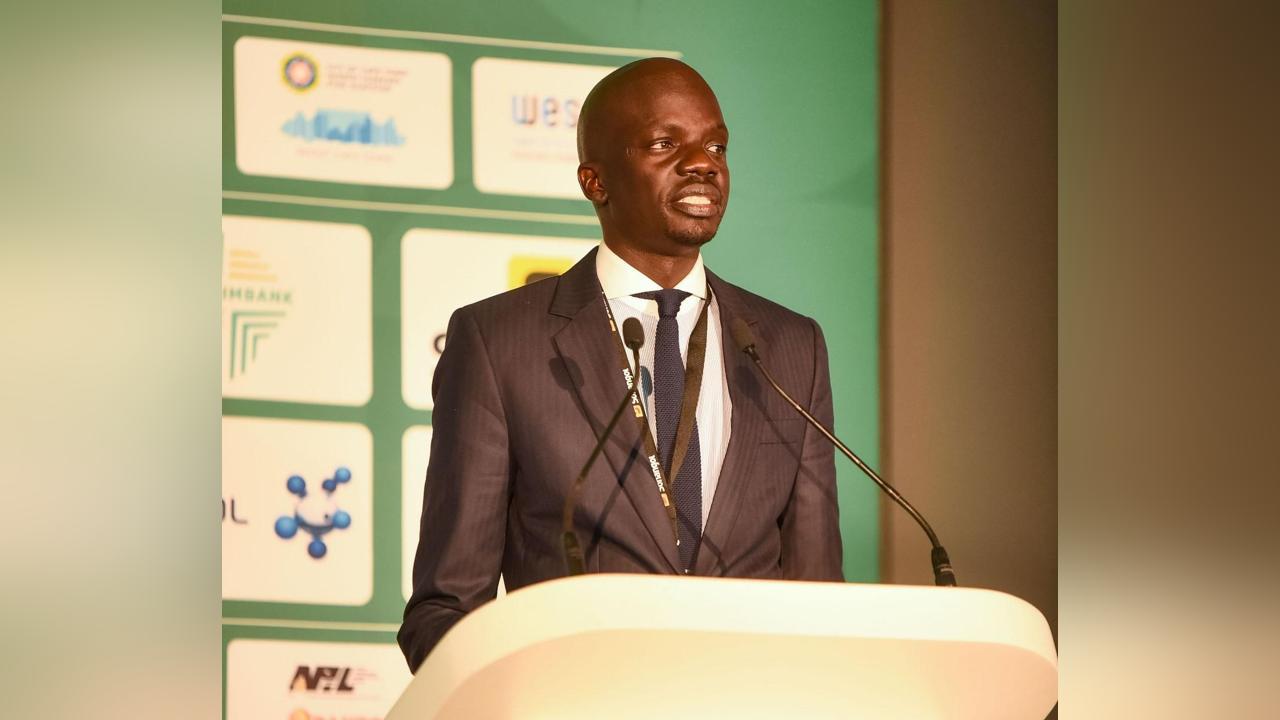Mamer Abraham
Africa-Press – South-Sudan. African ministers and energy sector technocrats renewed their criticism of Western countries for their “unfair and punitive” climate change policies targeting the continent.
Speaking at the South Sudan Oil and Power Conference at the Radisson Blu Hotel on Thursday, South Sudan’s Minister for Petroleum, Puot Kang Chol, said the continent was unfairly targeted despite compliance with the United Nations Framework on Climate Change and the Resolutions of the COP27 conference in Sharm El Sheikh, Egypt, and Cop 26 held in Glasgow, Scotland.
He argued that the continent only emits around three percent of carbon, which, according to him, is cancelled out by the iconic Congo Forest, but the West has yet to acknowledge this. He claimed that countries that emit close to 10 percent are the first to point fingers.
“But somebody, somehow, somewhere that has contributed more than 10 per cent (carbon emission) is telling us we must stop. Are we being fair to one another?” Puot posed.
“We continue to call for an inclusive and fair implementation process while taking into account our country, national economic growth, and environmental exposure.”
He urged transparency in the quest to transition from fossil fuels to green energy.
Energy poverty
NJ Ayuk, the Executive Chairman of the Africa Energy Chamber, stated that Africans were not against the energy transition, but the restrictions should be applied in accordance with the emissions from the oil-producing countries.
Ayuk added that African nations should exploit enough natural resources to get out of energy poverty so that they industrialise while wealthy nations decarbonize.
“We need to create energy; we need to create electricity for those who don’t have a chance, and while we believe that it is important to drive towards a transition, you have to decide your own timeline for a transition. “There are so many oil resources in this country that you cannot abandon them because people are wealthy and rich,” he said.
Zimbabwe’s Deputy Minister of Energy and Power Development, Magna Mudyiwa, stated that Zimbabwe was also facing challenges because energy access by its citizens was low at 62 percent.
Magna maintained that natural resources should be exploited to help in the economic development and energy satisfaction of African nations.
“These natural resources should therefore be exploited to meet the continent’s energy needs and transform the region into an economic powerhouse. Zimbabwe is heavily dependent on energy imports, especially for all of our fossil fuel requirements,” Magna said.
South Africa’s DDG for Mining, Mineral, and Energy Policy Development at the Department of Mineral Resources and Energy, Ntokozo Ngcwabe, said Africans must stop participating in debates about energy transition because they are facing energy poverty.
“The challenge we face as Africans is that we have a conversation about access to energy and just energy transition with people who cannot relate because they have never tasted energy poverty,” she said.
“To engage in conversations about energy poverty with people who have never tasted it, energy poverty for us and a just energy transition for us must include the exploitation of our own resources.”
The conference is meant to allow African countries to showcase their investment opportunities and discuss policies that are vital for the sector. South Sudan hopes to get investors, particularly for the refineries that beg for increased production.
Source: The City Review South Sudan
For More News And Analysis About South-Sudan Follow Africa-Press






